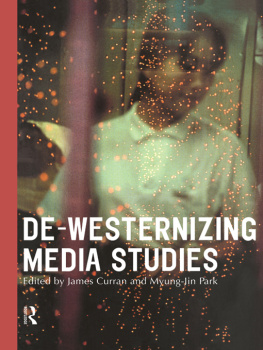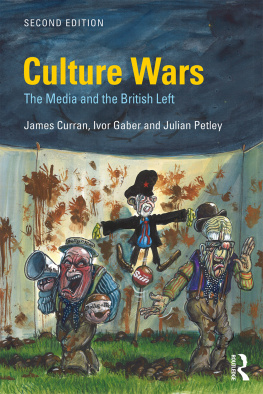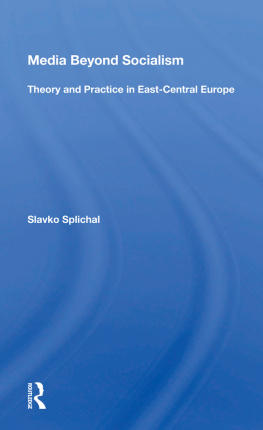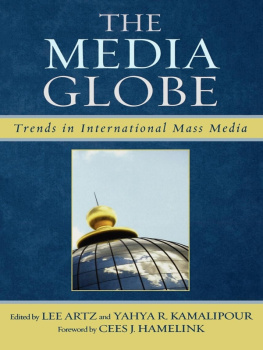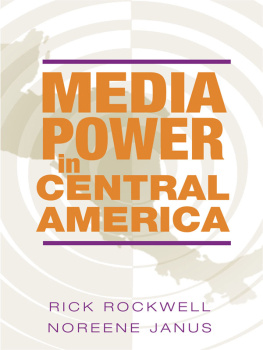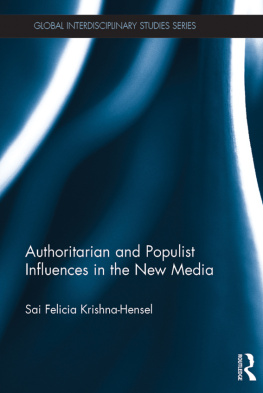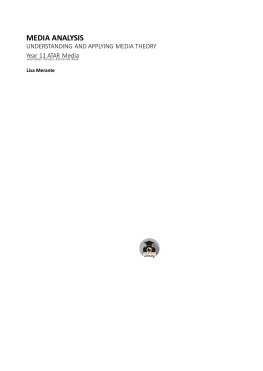Notes on contributors
Hussein Amin , Professor, Adham Center for Television Journalism, American University in Cairo.
W.Lance Bennett , Professor, Department of Political Science, University of Washington.
Stuart Cunningham , Professor and Head, School of Media and Journalism, Queensland University of Technology.
James Curran , Professor of Communications, Goldsmiths College, University of London.
Peter Dahlgren , Professor of Communications, University of Lund.
Terry Flew , Lecturer in Media Studies, Queensland University of Technology.
Daniel C.Hallin , Professor of Communications, University of California, San Diego.
Chang-Nam Kim , Assistant Professor of Communication, Sungkonghoe University.
Raymond Kuhn , Senior Lecturer, Department of Politics, Queen Mary and Westfield College, University of London.
Tawana Kupe , Lecturer, Department of Journalism and Media Studies, Rhodes University.
Chin-Chuan Lee , Professor of Journalism and Mass Communication, University of Minnesota.
Colin Leys , Visiting Professor, Department of Media and Communications, Goldsmiths College, University of London.
Tamar Liebes , Director of the Smart Institute of Communication, Hebrew University of Jerusalem.
Eric Kit-wai Ma , Assistant Professor, School of Journalism and Communication, Chinese University of Hong Kong.
Brian McNair , Reader in Film and Media Studies, University of Stirling.
Paolo Mancini , Professor, Institute of Social Studies, University of Perugia.
Zaharom Nain , Researcher, Research and Education for Peace Unit, Universiti Sains Malaysia.
James Napoli , Professor, Adham Center for Television Journalism, American University in Cairo.
Myung-Jin Park , Professor of Communications, Seoul National University.
Arvind Rajagopal , Professor, Department of Culture and Communication, New York University.
Helge Rnning , Professor of Communication, University of Oslo.
Byung-Woo Sohn , Assistant Professor of Communication, Chungnam National University.
Colin Sparks , Professor, Centre for Communication and Information Studies, University of Westminister.
Annabelle Sreberny , Professor, Centre for Mass Communication Research, University of Leicester.
Mitsunobu Sugiyama , Professor, Institute of Socio-Information and Communication, University of Tokyo.
Keyan G.Tomaselli , Professor of Communications, University of Natal.
Silvio Waisbord , Assistant Professor of Communication, Rutgers University.
Communication and Society
Series Editor: James Curran
Professor of Communications, Goldsmiths College, University of London
Glasnost, Perestroika and the Soviet Media
Brian McNair
Pluralism, Politics and the Marketplace
The regulation of German broadcasting
Vincent Porter and Suzanne Hasselbach
Potboilers
Methods, concepts and case studies in popular fiction
Jerry Palmer
Communication and Citizenship
Journalism and the public sphere
Edited by Peter Dahlgren and Colin Sparks
Seeing and Believing
The influence of television
Greg Philo
Critical Commmunication Studies
Communication, history and theory in America
Hanno Hardt
Media Moguls
Jeremy Tunstall and Michael Palmer
Fields in Vision
Television sport and cultural transformation
Garry Whannel
Getting the Message
News, truth and power
The Glasgow Media Group
Advertising, the Uneasy Persuasion
Its duboius impact on American society
Michael Schudson
Nation, Culture, Text
Australian cultural and media studies
Edited by Graeme Turner
Television Producers
Jeremy Tunstall
News and Journalism in the UK
A textbook, third edition
Brian McNair
Media Cultures
Reappraising transnational media
Edited by Michael Stormand and Kim Christian Schroder
What News?
The market, politics and the local press
Bob Franklin and David Murphy
In Garageland
Rock, youth and modernity
Johan Forns, Ulf Lindberg and Ove Sernhede
The Crisis of Public Communication
Jay G.Blumler and Michael Gurevitch
Glasgow Media Group Reader, Volume 1
News Content, Language and Visuals
Edited by John Eldridge
Glasgow Media Group Reader, Volume 2
Industry, economy, war and politics
Edited by Greg Philo
The Global Jukebox
The international music industry
Robert Burnett
Inside Prime Time
Todd Gitlin
Talk on Television
Audience participation and public debate
Sonia Livingstone and Peter Lunt
An Introduction to Political Communication
Second edition
Brian McNair
Media Effects and Beyond
Culture, socialization and lifestyles
Edited by Karl Erik Rosengren
We Keep America on Top of the World
Television journalism and the public sphere
Daniel C.Hallin
A Journalism Reader
Edited by Michael Bromley and Tom OMalley
Tabloid Television
Popular journalism and the other news
John Langer
International Radio Journalism
History, theory and practice
Tim Crook
Media, Ritual and Identity
Edited by Tamar Liebes and James Curran
Introduction
1
Beyond globalization theory
James Curran and Myung-Jin Park
This book is part of a growing reaction against the self-absorbtion and parochialism of much Western media theory. It has become routine for universalistic observations about the media to be advanced in English-language books on the basis of evidence derived from a tiny handful of countries. Whether it be middle-range generalization about, for example, the influence of news sources on reporting, or grand theory about the medias relationship to postmodernity, the same few countries keep recurring as if they are a stand-in for the rest of the world. These are nearly always rich Western societies, and the occasional honorary Western country like Australia.
Yet, the universe is changing in a way that makes this narrowness transparently absurd. Globalization, the end of the Cold War, the rise of the Asian economy, the emergence of alternative centers of media production to Hollywood, and the world-wide growth of media studies are just some of the things that seem to invite a different approach.
Indeed, there are growing signs that US- and UK-based media academics are beginning to feel embarrassed about viewing the rest of the world as a forgotten understudy. A recent straw in the wind is the unhappy caveat that Michael Schudson inserted toward the end of an incisive, critical overview of the literature on news production. All three approaches reviewed here, he laments, tend to be indifferent to comparativestudies, weakening their longer-term value as social science (Schudson 1996:156). Similarly, John Downing has recently poured scorn on attempts to universalize the experience of Britain and the United States, as if these affluent, stable democracies with their Protestant histories and imperial entanglements are representative of the world. Like Sparks (1998), he calls for communication theorising to develop itself comparatively (Downing 1996:xi).
However, the principal way unease about Western parochialism has been expressed has been through the recent boom of globalization theory. This is a welcome development, though it is also not without problems rooted in the past. Though most English-language media theory has been geographically confined, there has long been a minority tradition with a global orientation. What can be learned from it?

